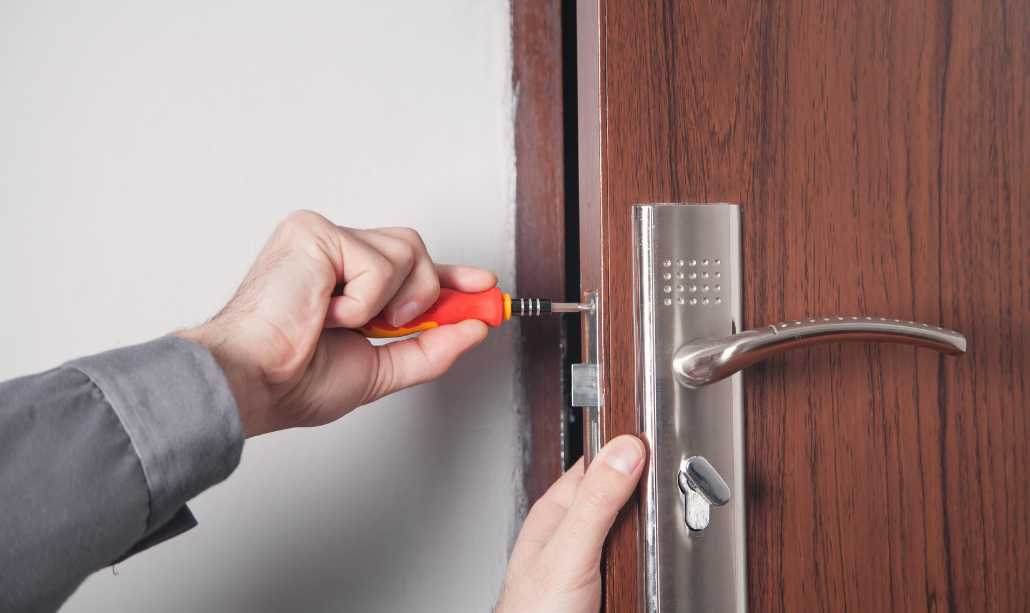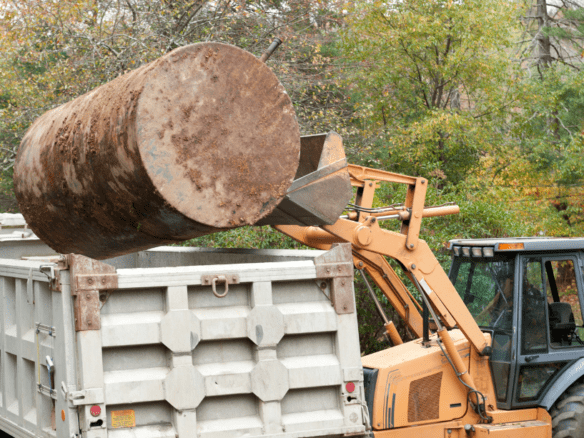Purchasing a home is one of the most significant investments most individuals will ever make, and with it comes the inevitable need for repairs and maintenance, both immediate and long-term. Properly handling these repairs is crucial not only for maintaining the property’s value but also for ensuring the safety and comfort of its occupants. This guide aims to provide homebuyers with a concise yet comprehensive overview of how to effectively manage repairs when acquiring a new property. From conducting thorough inspections prior to purchase and understanding the implications of various repair needs, to negotiating repair credits and hiring trustworthy contractors, this article will equip prospective homeowners with the essential knowledge and strategies to navigate the complexities of home repairs with confidence. Whether you are a first-time buyer or an experienced property investor, these insights will help you make informed decisions, optimize repair costs, and ultimately protect your investment.
Conduct Thorough Home Inspection First
When purchasing a home, it is imperative to ensure that a comprehensive home inspection is conducted before finalizing the transaction. This crucial step involves hiring a qualified home inspector to meticulously examine the property’s overall condition, encompassing structural integrity, electrical systems, plumbing, roofing, and potential pest infestations. Identifying existing or potential issues at this stage allows buyers to make informed decisions, negotiate repairs or adjustments to the purchase price, and avoid unforeseen expenses down the line.

In the context of “a short guide to handling repairs when buying a home,” a thorough home inspection serves as the foundation for subsequent actions. It provides a clear understanding of the home’s current state and highlights areas that require immediate attention or future maintenance. Armed with this detailed inspection report, buyers can prioritize repairs, budget accordingly, and seek professional advice for complex issues. This proactive approach not only ensures that the property is safe and livable but also protects the buyer’s investment in the long term.
Negotiate Repair Costs With Seller
Negotiating repair costs with the seller is a pivotal step following the home inspection. Armed with the inspection report, buyers should approach the seller to discuss the identified issues. It is essential to communicate clearly and professionally, presenting the findings and specifying which repairs are being requested. This negotiation can take various forms, such as the seller agreeing to complete the repairs before closing, providing financial concessions, or reducing the overall purchase price to account for the necessary work. Each approach has its advantages, and the chosen strategy should align with the buyer’s priorities and financial considerations.
Buyers should be prepared to justify their requests by referencing the inspection report and, if necessary, obtaining estimates from qualified contractors to substantiate the repair costs. An effective negotiation not only addresses immediate concerns but also builds a foundation of trust and transparency between both parties. Maintaining a collaborative and solution-oriented attitude can facilitate a smoother transaction and ensure that both buyer and seller reach a mutually satisfactory agreement. This step is integral to the overall process outlined in “a short guide to handling repairs when buying a home,” as it mitigates potential risks and ensures the buyer secures a property that meets their expectations.
Prioritize Urgent Safety-Related Repairs Promptly
Addressing safety-related repairs is crucial to ensure the well-being of the home’s occupants and to protect the property from potential hazards. Issues such as faulty electrical wiring, gas leaks, and structural deficiencies pose significant risks and must be tackled without delay. Resolving these problems promptly not only mitigates immediate dangers but also prevents more costly and extensive damage in the future. In the context of “a short guide to handling repairs when buying a home,” it is advisable to prioritize these urgent matters as part of the pre-closing process to ensure a safe living environment from day one.
Ignoring or postponing safety-related repairs can lead to severe consequences, including injury, property damage, and increased repair costs. Therefore, buyers should consider these repairs non-negotiable and work with the seller to address them before finalizing the purchase. If the seller is unwilling or unable to make the necessary fixes, buyers might need to negotiate for a reduction in the purchase price or ask for financial concessions to cover the cost of immediate repairs. Ensuring these critical issues are resolved promptly helps secure a safer and more stable home investment.
Obtain Multiple Quotes From Contractors
Securing estimates from multiple contractors is a prudent step in managing repair costs effectively. By obtaining several quotes, buyers can compare pricing, scope of work, and timelines, ensuring they select a contractor who offers the best value without compromising on quality. Variations in estimates can also highlight discrepancies or uncover additional aspects of the job that one contractor may have overlooked. This comparative approach not only facilitates informed decision-making but also enhances negotiating power, whether with contractors or during discussions with the seller.
Engaging multiple contractors also provides insight into the range of potential solutions for the required repairs. Different professionals may propose various methods and materials, shedding light on the most efficient and durable approaches. This practice aligns well with the objectives outlined in “a short guide to handling repairs when buying a home,” as it empowers buyers with a comprehensive understanding of their options. Additionally, ensuring that the selected contractor is licensed, insured, and has a solid reputation further safeguards the investment, providing peace of mind that the repairs will be completed to a high standard.
Budget Realistically For Unexpected Expenses
Having a financial cushion for unexpected expenses is crucial when dealing with property repairs. Even with meticulous planning and thorough inspections, unforeseen issues can arise, ranging from minor fixes to significant structural concerns. Allocating a portion of your budget specifically for these contingencies ensures that you are prepared for any surprises and can address them promptly without financial strain. This proactive approach not only mitigates stress but also protects the overall investment you are making in your new home.
Incorporating a realistic buffer into your budget allows for greater flexibility and responsiveness. Emergency repairs, such as plumbing leaks or electrical failures, often demand immediate attention and can incur significant costs if not handled swiftly. By setting aside funds for such eventualities, you align with the preventative strategies recommended in “a short guide to handling repairs when buying a home.” This readiness helps maintain the integrity of the property and supports a smoother transition into homeownership, ultimately contributing to long-term satisfaction and security.
FAQ
What Are Some Common Repairs That A Homebuyer Should Expect To Encounter When Purchasing A New Home?
Common repairs for new homeowners often include addressing minor plumbing issues like leaky faucets, fixing electrical problems such as faulty outlets or light switches, repairing or replacing damaged drywall, and addressing issues with windows and doors, such as broken seals or misalignment. Other potential repairs might include servicing the HVAC system, replacing outdated or worn-out appliances, and ensuring that the roof and gutters are in good condition. It’s also wise to check for any signs of water damage or pest infestations. Conducting a thorough home inspection before purchasing can help identify these issues early.
How Can A Homebuyer Determine If A Repair Is Necessary Before Purchasing A Home?
A homebuyer can determine if a repair is necessary before purchasing a home by hiring a professional home inspector to conduct a thorough inspection. The inspector will assess structural components, electrical systems, plumbing, roofing, and other critical areas. Reviewing the inspection report can highlight any necessary repairs or potential issues. Additionally, the buyer can request repair estimates from contractors to understand the costs involved. This due diligence helps the buyer make an informed decision and negotiate repairs or price adjustments with the seller if needed.
What Are Some Tips For Negotiating Repairs With The Seller During The Home Buying Process?
When negotiating repairs with the seller during the home buying process, get a professional home inspection to identify issues clearly. Prioritize major repairs that impact safety or functionality. Be reasonable and specific in your requests, providing estimates if possible. Communicate respectfully and be willing to compromise. Consider asking for a repair credit or price reduction instead of specific fixes. Work closely with your real estate agent for expert advice and to ensure your requests are reasonable and well-presented.
How Should A Homebuyer Prioritize Repairs After Moving Into A New Home?
A homebuyer should prioritize repairs based on safety, necessity, and cost. First, address any critical safety issues such as faulty wiring, gas leaks, or structural problems. Next, focus on essential systems like heating, plumbing, and roofing to ensure the home is functional and weatherproof. Finally, consider cost-effective improvements that enhance comfort and efficiency, such as insulation or minor cosmetic updates. Create a list, prioritize by urgency, and tackle projects step-by-step to manage expenses and avoid feeling overwhelmed.
Are there any resources or professionals that can assist with handling repairs when buying a home?
Yes, there are several resources and professionals who can assist with handling repairs when buying a home. Home inspectors can identify issues that need attention. Contractors and handymen can provide repair services. Real estate agents often have a network of trusted professionals. Additionally, some home warranty companies offer coverage for repairs. Consulting these experts can help ensure that necessary repairs are addressed efficiently and effectively.







Join The Discussion